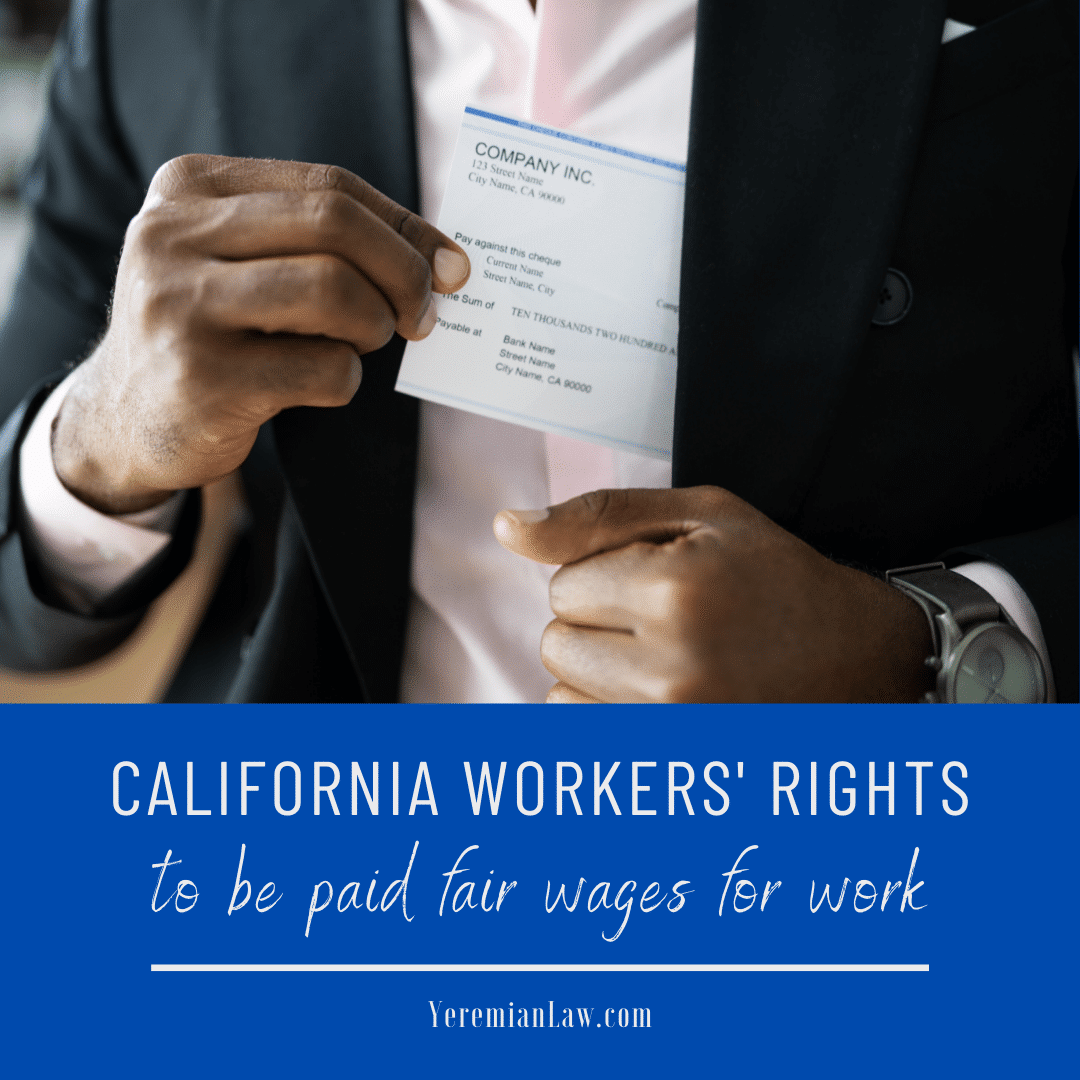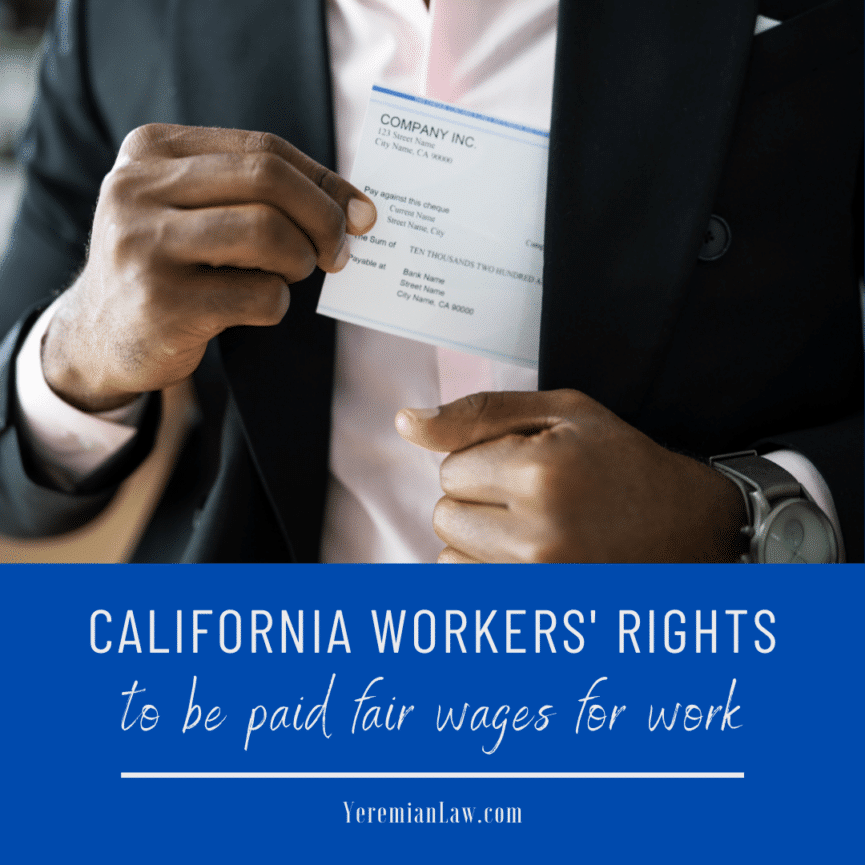
In the state of California, workers have the right to be paid fair wages for work. That means employers are legally required to pay at least the minimum wage for the state, which is higher than the federal minimum wage. Employers are also required to pay nonexempt employees for overtime hours worked, as well as provide breaks for employees who are entitled to take them. (Learn more about meal and rest breaks here.) This guide outlines employers’ responsibilities toward employees when it comes to paying fair wages for work.
Your Right to Be Paid Fair Wages for Work: The California Equal Pay Act
One of the most important things to address in an article like this is the California Equal Pay Act. under this act, workers are allowed to bring legal actions against employers who pay people differently based on their gender. If two people of differing genders perform substantially similar work, California employers must pay them the same wage.
This act also makes it permissible for you to ask your coworkers how much money they make. Your coworkers can ask you how much you make, as well. You never have to answer this question, but making it lawful to ask is one way to ensure transparency so employers cannot Get away with paying unfair wages to others based on their gender.
Related: Can you do anything if your employer denies you FMLA leave?
Examples of Wage Theft and Your Right to Be Paid Fair Wages for Work
Employers in the state of California are not permitted to commit wage theft. Some examples of wage theft include:
- Failing to pay the appropriate amount for overtime hours California is very specific about its overtime rules, and employers are supposed to pay you at least 1.5 times your normal wages for working overtime; in some cases, employers are required to pay you twice your normal wages.
- Falsely reporting a worker’s number of hours worked. Some employers change time cards and falsely report the number of hours that some employees work. Unfortunately, this often happens when an employee works overtime hours. This practice is illegal.
- Making unlawful deductions from employees’ wages. Employers are only allowed to make lawful deductions from your wages. However, some employers try to minimize how much they owe you by taking unlawful deductions, such as charges for maintenance on equipment that the company owns.
- Misclassifying employees as independent contractors. Sometimes, employers misclassify workers in an attempt to pay them less or avoid providing benefits. Employees and independent contractors have different entitlements under California law, so by misclassifying workers, employers can save money. Sometimes this happens accidentally, but other times employers do it on purpose.
- Misclassifying nonexempt workers as exempt workers. Employers are not obligated to pay overtime wages to exempt workers, so sometimes, they misclassify people intentionally. They do this to avoid spending more money on employees.
- Paying a worker less than minimum wage in the state of California. The state of California has a minimum wage for a reason. Employers are legally required to pay you that minimum wage, which is substantially higher than the federal minimum wage, regardless of your work status or immigration status. Employers cannot pay you less than minimum wage, even if you agree to it verbally or in writing.
- Requiring workers to pay for items they need to perform their jobs without reimbursing them. If your employer requires certain items for you to perform your job, your employer is required to pay for them.
Related: Your guide to California employee rights
Can an Employer Reduce Your Salary?
Generally, employers are allowed to reduce a person’s pay. However, if an employer reduces your pay, it still must pay you at least the state minimum wage. That’s true whether you earn an hourly rate or you are a salaried employee.
Do You Need to Talk to an Employer About Your Rights to Be Paid a Fair Wage for Work?
If you suspect your employer is not paying you a fair wage, or your employer is committing wage theft, you may want to speak to a California workplace rights attorney. You can call us at 818-230-8380 or fill out the form below to schedule your free consultation with an experienced, caring attorney who may be able to help you.




